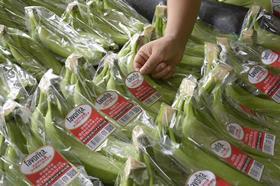
The delicate balance between protecting health and livelihoods during the Covid-19 pandemic was thrown into sharp relief by one of Ecuador’s leading banana exporters last week.
Speaking during a virtual roundtable discussion on global food security organised by The Business Year, Vicente Wong, commercial manager of Reybanpac, said the response from the Ecuadorean government and private companies to the crisis had been swift and decisive.
“Our first priority was to protect our workers’ health. The second is the responsibility of maintaining the jobs, for which we had to find the correct measures to operate and keep our business flowing,” he said.
The big lesson that has emerged from this experience, Wong continued, is the importance of working on broader contingency plans that integrate suppliers and other actors in the value chain.
“At this time we strive to have strategic alliances with specific actors that are very relevant to fulfill our operation, with our exports and with our clients.”
He pointed out that Ecuador had been among the first countries in the world to develop an occupational safety and health manual specifically for the banana industry, which is made up of around 7,000 producers.
Ecuador is the world's largest banana exporter with a 30 per cent share of the global market. “We have very strong markets in Russia, the Middle East, Mediterranean countries, Asia, as well as Europe and the US,” Wong noted. “This diversification brings stability to sustain the industry.”
He added that there is a lot of potential for Ecuador to further penetrate many markets, such as Turkey, whose per capita consumption of bananas ranges from 4 to 5kg per year, in contrast to 17kg in a mature market such as Germany.
Wong highlighted the efforts the country has made to improve the social, environmental and productive sustainability of its banana industry, citing the recent incorporation in its legislation of the mandatory payment of a living wage for workers.
In the last 10 years, the country has been consistently reducing the gap between the minimum wage and the living wage, to the point that in 2020 the basic salary exceeded the calculation established for the living wage.
'The living wage is an issue that has been gaining interest in the agricultural sector globally in recent years, and we are proud that Ecuador is one step ahead,” Wong said.
For its part, Reybanpac has invested in technology and is constantly working to develop precision agriculture in its plantations to achieve a greater optimisation of resources that maximizes productivity, while reducing the consumption of water and chemical products, Wong added.
“We have travelled an important path as an agro-industry, but there is still a lot of room to grow and improve.
“As a company and country we are completely committed and we have a clear horizon to maintain a premium and sustainable product, but this will also be possible to the extent that all the actors in the chain work together so that the industry can be in fact sustainable.”






No comments yet